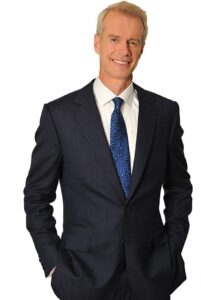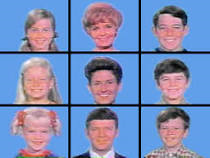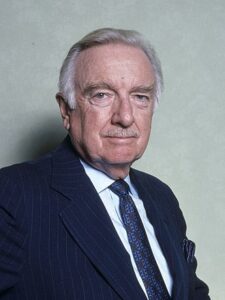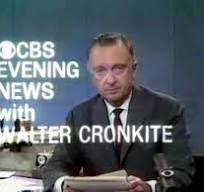Since Ted Turner played a practical joke on the world when he introduced 24-hour global news coverage in 1980, it’s become evident that people are not too interested in 24-hour news coverage. Even worse, cable networks don’t often seem to be able to provide 24-hour news coverage, at least as “news” is traditionally defined, to their viewers.
In its place today are networks that have adopted the name “24-hour news.” Yet, considerable gaps in the hour-by-hour cable scheduling must be filled with panel discussions, rehashing the same news, endless opinions from experts and non-experts alike, and repetition.
The essential characteristic here is repetition. This can be achieved by re-reporting the same story in every segment for the entire day, repeating the duplicate loop footage of the event numerous times in a 20-second clip, or having different panels discuss the same news event.
From the anchorperson’s perspective, we can wonder how they seem to sound as if this is the first time the question has been asked, even though it was asked scores of times before.
As viewers, we wonder why they cannot get different video loops for the same event, considering the cameraperson is on the scene and has probably shot many minutes of tape.
ACCEPT DISINFORMATION. IT’S UNINTENTIONALLY PART OF THE CABLE NEWS BUSINESS MODEL
The panel discussions have proven the best way to fill the time slots. The panels can range from two to six people. In the attempt for “balanced” reporting, the guests come from all sides of the political spectrum, including some who have no qualms about telling outright lies that commonly go unchallenged by other intelligent people on the same panel. The Republicans have developed a whole approach to media training that teaches their people to ignore the interviewer’s questions. Sure, they can start addressing the interviewer’s question. Still, after a few words, the Republican can easily talk about whatever issue or slant he wants to push using the cable news outlet as his microphone.
Republican Media Training is Simple: Never Answer the Question
There are great examples of this every day on cable news stations. On March 15, in an interview on Bill Maher’s show, Democrat Roe Khana was on a panel with Republican Nancy Mace of North Carolina. In response to a question from Marr about the state of the nation,

Mace responded the country was in shambles, and the economy was the worst it had ever been. There are endless wars that have all been caused or allowed to happen by Biden. Meanwhile, Kana sat quietly next to Mace until Maher asked Kana if he had anything to counter the Republican propaganda.
Kana responded by saying he was being polite before he answered. To his credit, Maher said to Kana, “That’s why you lose elections.”
Maher was 100% correct. Being polite during cable news show interviews is a losing strategy. At one time, being courteous in interviews was the proper thing. But in MAGA politics, being polite is the road to ruin. It’s for suckers, given the Republican media training that steamrolls serious questions. The famous quote by Hillary Clinton, “When they go low, we go high,” is naïve and the recipe for losing. Being a wimp and letting false charges fly shows that the panelist is too timid to respond, doesn’t have the facts to respond, or is not up to being an elected politician who is supposed to defend their party or the nation.
What Guests Should Know About Being Interviewed
Being interviewed on a cable news show may be flattering to the person being interviewed, but it is all business from the cable show’s perspective. That’s because the role of the producer is to find experts or people involved in a piece of news to get their first-hand account of what happened or an interpretation of a breaking news situation.
The producer’s job is to find a credible expert from any reputable institution or company. It’s not personal. If you are unavailable for the interview, they find someone else.
The interview alone will not boost your reputation for longer than 15 minutes; you can use it on your resume. Still, the main thing for most people not widely recognized as authorities in the law, investing, corporate leadership, medicine, or any legitimate field is that your TV appearance will be short. For many guests, getting prepped for the interview will take about as long as being interviewed. When you are done, you are done. Don’t be insulted if you are not called back. It’s just that you filled the time slot, and your role is over.
That’s why thanking the interviewer “for having me on the show” is unnecessary. The producer and interviewer should thank you for filling the time slot. You, the guest, do not have to thank the interviewer. I’m unsure when this “thank you for inviting me here” slogan appeared, but it was not expected a decade ago. Nor is it used on many other non-24-hour cable news outlets.
Guests on the BBC don’t say it, and most local news show guests don’t. Does this mean that thanking the cable people on-air is terrible? No, but your credibility will improve if you start addressing the topic, keeping it concise, and showing our expertise. Chances are you will not become a regular interview subject, so focus on your topic and knowledge. After all, it’s all business.
Where to Get News Without Repetition
Global broadcasting networks are not built around news summaries, which are traditionally delivered every hour on the hour. The cable news segments use this hourly transition time to convince you not to change the station. This is the oldest game in broadcasting. “Keep that dial tuned to this station because we’ll return with more breaking news.” This is often a lie because the “breaking news” happened hours earlier or yesterday. Or, the anchorman will try to entice you with a “special guest” who may be memorable, but he has nothing new to say about the news that was analyzed for the past few hours.
Their goal is to keep you from changing channels. If you get too bright for this ploy, you still want to get a news summary to be better-informed citizens.
Here are some alternatives:
- Turn to local news. Local news doesn’t get the credit it deserves, but its homey, no-frills designs and average-looking anchorpeople are refreshing. They frequently do an on-the-hour news summary and get the feed from the national network (ABC, NBC, CBS, FOX, CNN), and it is news without the hype. Plus, you get the local weather and local news.
- Watch the BBC and other foreign news services. The BBC is still the highest standard of journalism in the world. The British government owns the BBC, and it has been a global news source because Great Britain was the world’s most significant colonial power when the radio was first introduced. The BBC journalists are trained to cut the standard fluff

John Sackur BBC on CNN, FOX, and MSNBC. The BBC show “Hard Talk” is an excellent example of a no-nonsense, informed interview from Stephen John Sackur, the BBC interviewer who does not let false, misleading, or unsubstantiated statements go unchallenged. I have seen or heard no counterpart to him and his style in U.S. broadcasting since CNN started in 1980. That’s why most of the anchor people on U.S. cable news networks would never make it on the BBC. It’s impossible to envision Wolf Blitzer on the BBC making his simple, vapid transitions from report to report without adding anything new to the discussion. Blitzer is famous for saying, “Thanks for that informative report,” “Stay safe,” and “Happening now, breaking news.” Blitzer, like most of the other 99% of cable news journalists, rarely confront politicians or officials who knowingly make false statements during an interview they are conducting. Someone could stop much of the disinformation and misinformation flooding the U.S. media today if journalists challenged the person making the false statements in real-time, as the statements were being made on the air. But this is not done because the journalists and the producers want to stay friendly with the propagandists. If the propagandist is challenged, they could decline future interviews. This is the worst thing a producer could face since they must spend more time during their show.
- Listen to worldwide web radio. Thanks to the internet, you can choose from thousands of radio shows and networks worldwide. Short-wave radio is how news fanatics got their news a decade ago, but web radio makes it easier and more convenient to find the stations you want in literally any nation on Earth. Perspective often determines news coverage and its impact, so finding a new source for news is a great learning experience.
Accept Disinformation. It’s Part of the Cable News Business Model
Much of propagandists’ disinformation and steamrolling of interviewer’s questions is known to cable news executives. There are knowledgeable, experienced people in cable journalism, but their business model is flawed. It is designed to kill time, fill the programming slot, and gain viewership while holding down expenses related to a 24-hour global news operation.
Keeping overseas reporters and subsidizing their living expenses and salaries is expensive. Cable TV is a big business that commands big salaries for people acting as show hosts and presenters who are not now newspeople or journalists. Wolf Blitzer reportedly makes $15 million annually; Anderson Cooper, $20 million; John Berman of CNN, $2 million; Erin Burnett, $6 million; and Jake Tapper, $13 million.
The rhythm and culture of the global cable news business are complex to change. Viewers’ tastes, opinions, and reactions change faster than what happens inside corporate cable headquarters. The repetition, redundancy, same old video loops, and cliché comments about “Stay tuned for breaking news” are recognized by ordinary people as empty talk.  The panel discussion often gets so big that it looks like the opening shots from the Brady Bunch. Rows of experts who collectively disagree on anything produce falsehoods that go unchallenged and make no memorable points, leaving viewers confused. This only adds to the national tension.
The panel discussion often gets so big that it looks like the opening shots from the Brady Bunch. Rows of experts who collectively disagree on anything produce falsehoods that go unchallenged and make no memorable points, leaving viewers confused. This only adds to the national tension.
The BBC’s Hard Talk is a great program to copy. The problem is that it is tough to find a U.S. journalist who is up to the task for the half-hour a show like that would require. Plus, U.S. audiences don’t have the attention span for it. An alternative is to go back to the 30-minute news show that Walter Cronkite or the Huntley-Brinkley show that aired in the 1960s offered. Those news programs were concise and presented the news with no opinions. The original Douglas Edwards news show was 15 minutes and was expanded to 30 minutes for Cronkite.

Anchors in the 1960s also had better reputations and veritas than anyone today. It was a historic day in journalism when Walter Cronkite announced that he was against the Vietnam War during his national broadcast. “He became so influential in the role that when he began to question the U.S. war in Vietnam, President Lyndon B. Johnson said, “If I’ve lost Cronkite, I’ve lost middle America,” according to Reuters.
It is unfair to compare today’s cable TV news hosts (most are not practicing journalists) to the newspeople of the 1960s. The whole industry has changed. Cronkite never made more than $1 million a year, but he said he was satisfied with his salary. Cronkite did not complain when Katie Couric was paid $15 million annually to replace him.
So, would those old broadcast TV news shows work today on a national level? There would be an audience, but the revenues may not follow this old format. Form follows function, revenues follow form, and the old news broadcasting business model helped, arguably to a small degree, to produce a more informed electorate.
That means the current, confusing, often illogical cable news format usually produces confused, unsatisfied, combative results in the electorate. Ben Franklin, a former newspaper publisher and the first Postmaster General started the U.S. Postal Service in 1775 so citizens in the frontier could get newspapers to keep them better informed.
Cable TV news executives should ask whether they are informing people today or have created the Tower of Babble. Based on the nation’s emotional mood alone, we already know the answer.











